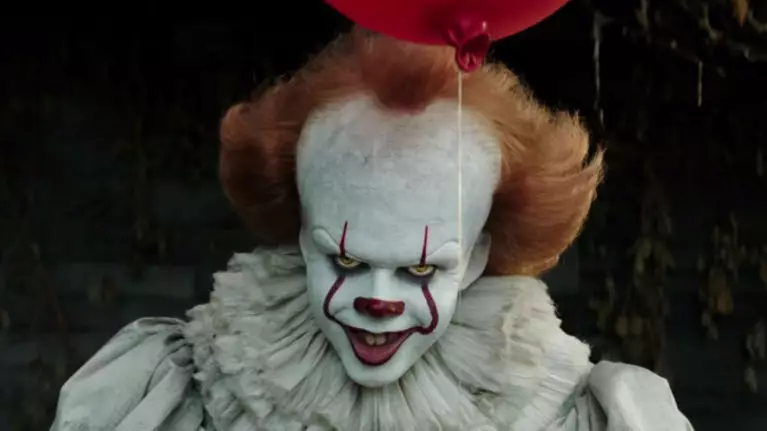
Some people can never seem to catch a break when it comes to their careers.
Take clowns for instance: after one hiccup, there seems to always be another issue waiting around the corner.
The Hollywood Reporter claims that several professional clowns are getting less and less gigs thanks to coulrophobia, which could potentially have first been triggered by IT.
Advert
Pam Moody, President of the World Clown Association, claims that people's fear of clowns hasn't always been this way, but was created following the release of Stephen King's novel in 1986.
Pennywise, the lead character who's a shapeshifting and malevolent entity millions of years old, terrorises children by exploiting their fears and phobias.
Credit: Warner Bros.
Advert
"It all started with the original IT, that introduced the concept of this character. It's a science-fiction character. It's not a clown and has nothing to do with pro clowning," Moody said. "People had school shows and library shows that were cancelled. That's very unfortunate.
"The very public we're trying to deliver positive and important messages to aren't getting them."
On the contrary to her claims, Stephen King tweeted claiming kids have always been scared of clowns.
Advert
To be honest, I'd have to agree, because I can't imagine any 6-year-old's picked up a novel in 1986, read it, then were suddenly scared of clowns. They're just creepy things.
According to Sigmund Freud, the founder of psychoanalysis, the phobia is actually a bit deeper than what Moody is claiming. In fact, the real reason goes someway to explaining why King and countless others have chosen to use clowns in the first place.
He called his theory 'the uncanny', which basically means that we get the creeps when something is familiar enough for it to be recognisable but weird enough for it to be 'off'. So, we recognise a clown as a person, but then his face is covered in makeup and that's the bit that leaves us feeling unsettled.
Advert
So, Stephen King and co. chose clowns to play on the fears that a lot of us already had.
Child and adolescent psychiatrist Steven Schlozman told CTVNews: "We know what a person looks like - they've got two eyes, a nose and a mouth, and so do clowns. But with clowns, their facial features are exaggerated and grotesque.
"There's a permanently painted smile or a permanently painted frown, so you don't actually know what their motivation is."
Makes sense, doesn't it?
Advert
If you think back to last year you'll probably recall the "killer clown" trend, whereby nobheads dressed up with baseball bats and abused people.
American police have warned people about possible clown sightings because of the upcoming release of It.
"It is anticipated that 'creepy clown' sightings could be reported starting as soon as September, in part due to the fact that the movie IT will be released in theatres," The Pennsylvania State Police department said in a statement.
The trend got so out of hand last year that it actually became a criminal offence to dress up as a clown in public.
Thames Valley Police issued a warning to anyone planning to do so after a number of young children were scared and others were stabbed or injured.
At the clown craze height, the force dealt with 14 clown-related incidents in 24 hours. Chief Superintendent Andy Boyd told the Evening Standard: "Some of the behaviour that is being reported would lead to arrest. We don't want to spoil the Halloween fun but we do want people to feel comfortable and safe.
"You need to consider the ramifications of your actions and how you are making people feel. You may be arrested if you are putting people in fear."
Featured Image Credit: Warner Bros.Topics: Clowns, IT, Pennywise, Stephen King